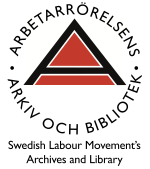Mind the gap! An entangled history of economic citizenship and the demand for equal pay 1945-2000. Silke Neunsinger & Ylva Waldemarson.
In English:
The project focuses on the importance of international and transnational entanglements for the development of economic citizenship, i.e. national and international unions’ demands for equal pay between 1945-2000. Earlier historical studies on equal pay are characterized by methodological nationalism. As a result the questions of why a state ratified the ILO convention or why unions decided to make equal pay a central demand at a given time, cannot be sufficient explained. To find adequate explanations one must focus on the interactions between national and global development. We therefore use the hermeneutical approach of Histoire croisée, which contains both elements of comparative analysis and transfer analysis and focuses on the assimilation and adaptation of entanglements, but does not neglect the fractions and differences between different levels.
På svenska:
Kravet på likalön har en lång internationell historia och var tidigt ett konstituerande element i ILOs program. 1948 antog FN resolutionen om likalön och 1953 antog ILO konvention 100 som idag ratificerats av 161 stater. Trots debattens globala karaktär har likalön utifrån ett historiskt perspektiv nästan uteslutande studerats på nationell nivå. Transnationell interaktion har uteslutits som förklaring vilket gjort det svårt att finna övertygande förklaringar till varför de enskilda länderna ratificerade konventionen. Syftet med vårt projekt är därför att studera spridningen och anpassningen av den fackliga politiken rörande likalönen utifrån ett globalt perspektiv.

